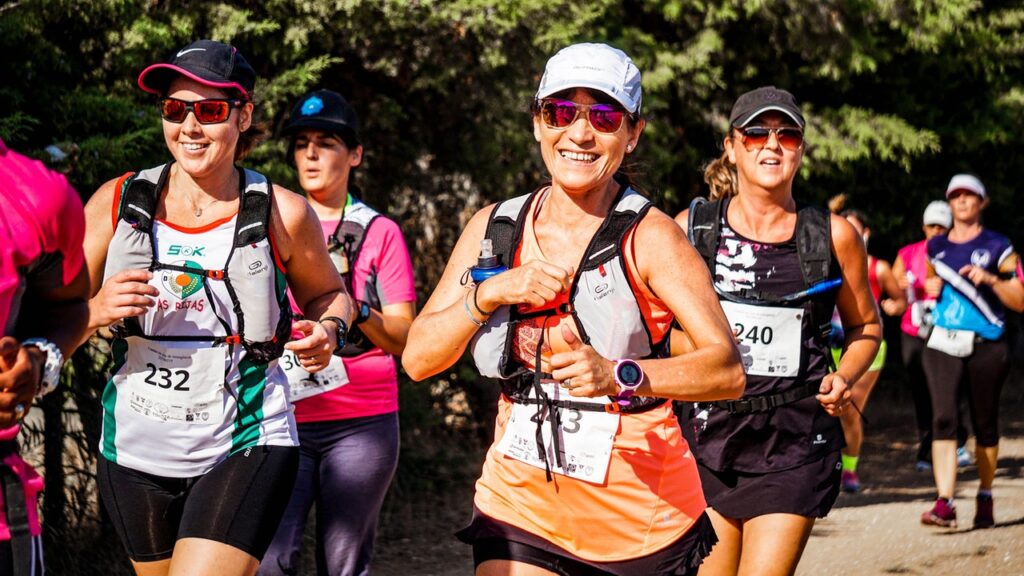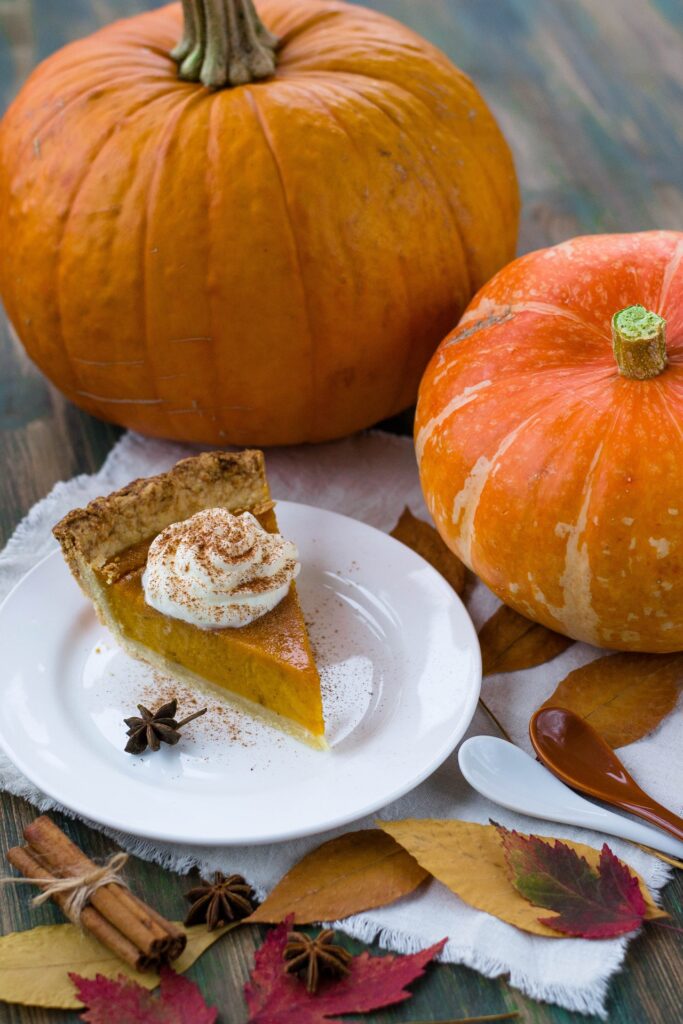Tag: healthy habits
Have a Happy (and Healthy) Thanksgiving
Thanksgiving is coming! I don’t know about you, but I am so excited. I love this holiday – the family time, the food, sharing gratitude and appreciation… It’s just the best!
However, I know that sometimes, the holidays can bring a little stress. Especially when it comes to food and making healthy choices. Most people think that their healthy diet and the holidays aren’t the most compatible. And while it’s true that the parties, family gatherings, and celebrations may create some challenges, there are many ways to navigate the holiday season all while maintaining a perfectly balanced diet.
So, let me show you how you can make it through this Thanksgiving, healthy and stress free!
Thanksgiving Turkey Trot
Get active! There is no better way to start Thanksgiving day than to find some way to be active before the big meal. And no, it’s not because you need to burn off extra calories before dinner (one meal won’t hurt you). It’s because physical activity has some amazing benefits, which will leave you feeling energized and ready to enjoy the day!

Regular exercise reduces our risk of chronic disease, it keeps our bones and joints healthy, it can be good for our mental health, and it even has a large role in keeping us energized throughout the day. [1-7]
So, to start your Thanksgiving holiday off right, by signing up for a Turkey Trot 5K run! Or, maybe encourage your family and friends to join you for a walk outside. You can even get activity in by playing games, like corn-hole or a friendly game of flag football!
Get Yourself a Plate

Sometimes, Thanksgiving can feel like an endless day of eating. Breakfast is followed by snacks, and appetizers, the main courses, and of course, you have to squeeze in a slice of pie (or two). I find that I’m usually stuffed by noon!
However, one of the most effective ways to prevent overeating is to be mindful of portion sizes. It can be easy to graze and snack all day, however, you may find yourself eating two, three, or even four times the portion size without realizing it!
Standard portion sizes are as follows:
Nuts: ¼ cup
Cheese: 1 oz (about 1 slice of cheese)
Chips/Crackers: varies, depending on the type – check out the nutrition label for the individual portion size!
Dips: usually about 1-2 tbsp
Meat/Protein: 3 oz (about the size of the palm of your hand)
Veggies: 1 cup raw, or ½ cup cooked
Fruits: 1 cup raw, or ½ cup cooked
Alcohol: 12 oz of beer (standard 5% ABV), 5 oz of wine, 1.5 oz of liquor – 1 drink for women, 2 drinks for men
While each of these measurements reflects one single portion size, it does not mean that you always need to limit yourself to one portion. You may serve yourself more or less! For example, while snacking on appetizers, it is completely acceptable to portion out 2 oz of cheese (2 serving sizes) + 1.5 oz of salami (½ the serving size) + 1/2 cup of apple slices (½ the serving size). See what I mean?
So, grab a plate, serve yourself what you think you’ll eat, and enjoy your time!
Practice Mindfulness

Have you ever practiced mindful eating? If not, Thanksgiving is a great day to start. Simply put, mindful eating is the acknowledgement of, and attention to, feelings around food choices, and feelings of hunger and fullness during mealtimes. Rather than gobble up your food quickly without thinking (turkey pun intended), you can practice a few techniques to help you be more mindful during Thanksgiving dinner.
- Start by giving thanks! Remind yourself why you’ve gathered with friends and family on this day, and what you are thankful for. This is a great start to the mindful eating process, and will get you in the right mindset.
- Slow down. Mindful eating can help us tap back into important appetite cues that tell us, “Eat! You’re hungry!” or “Stop eating, you feel satisfied!”. It can be hard to listen to feelings of hunger and fullness when we aren’t really paying attention. One way to pay better attention to those feelings – slow down and enjoy your food.
- Use your senses. We register food enjoyment with our senses. Smell, taste, touch, sight, and even hearing! When you slow down your pace of eating, it can allow you to spend more time being mindful about how your meal impacts your senses, beyond just taste. This can also encourage greater appreciation for the flavor and quality of the meal you’re eating. Savor every bite like it’s your last!
- Remove distractions. One of the biggest barriers to mindful eating is distraction, particularly, electronic distractions. So, put those screens away. Place your phone in the other room while you eat. Enjoy time with family and friends!
Practice Flexibility this Thanksgiving

When it comes to Thanksgiving dinner, there are plenty of ways to make healthy choices! However, let’s note that while we should all aim for a wholesome, healthy diet, it’s also important to find balance in our choices. While we don’t choose pumpkin pie for its nutritional value, we might choose it because it makes us feel good. It might be part of a Thanksgiving tradition! Pumpkin pie might be the one dish you look forward to all year. Ultimately, food may have value, aside from its nutritional value, and that is just as important to consider when we make healthy choices.
I never want to feel guilty about the foods I eat on special days, like Thanksgiving. I grant myself permission to be flexible. And you should too! Thanksgiving only comes once a year, and we all deserve the chance to enjoy the day to its fullest. However you choose to spend your Thanksgiving this year, I hope it is filled with delicious food, quality time, and happy memories. I wish you the happiest Thanksgiving; I am so grateful for you, your support, and your trust. Now, let’s eat!
Citations
- Myers, Jonathan. “Exercise and Cardiovascular Health.” Circulation, vol. 107, no. 1, 2003, https://doi.org/10.1161/01.cir.0000048890.59383.8d.
- “Exercising to Relax – Harvard Health Publishing.” Harvard Health, 7 July 2020, https://www.health.harvard.edu/staying-healthy/exercising-to-relax.
- “More Evidence That Exercise Can Boost Mood.” Harvard Health, 1 May 2019, https://www.health.harvard.edu/mind-and-mood/more-evidence-that-exercise-can-boost-mood.
- Guszkowska, Monika. “Wpływ ćwiczeń fizycznych na poziom leku i depresji oraz stany nastroju” [Effects of exercise on anxiety, depression and mood]. Psychiatria polska vol. 38,4 (2004): 611-20.
- Toni Golen, MD, and MD Hope Ricciotti. “Does Exercise Really Boost Energy Levels?” Harvard Health, 1 July 2021, https://www.health.harvard.edu/exercise-and-fitness/does-exercise-really-boost-energy-levels.
- “Osteoporosis: Peak Bone Mass in Women.” National Institutes of Health, U.S. Department of Health and Human Services, https://www.bones.nih.gov/health-info/bone/osteoporosis/bone-mass.
- Toni Golen, MD, and MD Hope Ricciotti. “Does Exercise Really Boost Energy Levels?” Harvard Health, 1 July 2021, https://www.health.harvard.edu/exercise-and-fitness/does-exercise-really-boost-energy-levels.
